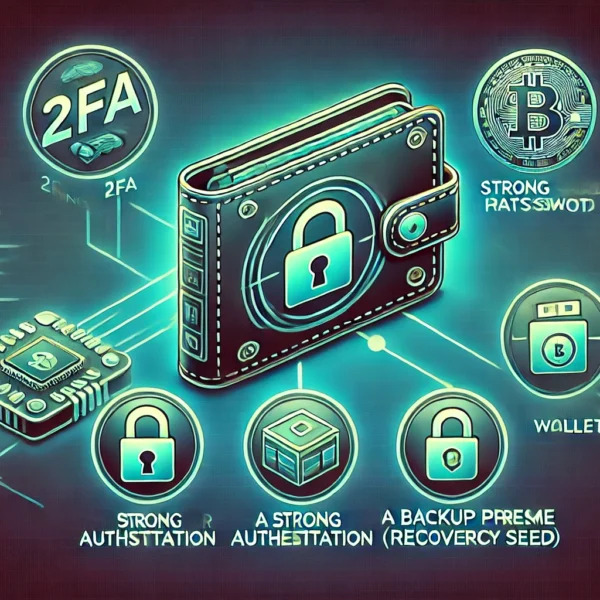
Ethereum, the second-largest cryptocurrency after Bitcoin, has become a powerhouse in the world of decentralized finance (DeFi), fueling innovations like NFTs (non-fungible tokens), smart contracts, and decentralized applications (dApps).
As its popularity grows, investors are increasingly looking for simplified ways to gain exposure to Ethereum’s potential – and this is where Ethereum ETF (Exchange-Traded Funds) come in.
What is an ETF?
- An Exchange-Traded Fund (ETF) is a type of investment fund traded on stock exchanges.
- ETFs bundle together a basket of assets – stocks, bonds, commodities, or as in this case, cryptocurrency-related instruments.
- When you buy an ETF, you’re essentially buying a small piece of that diversified basket, offering you exposure to the underlying assets’ performance.
What is an Ethereum ETF?
An Ethereum ETF aims to track the price of Ether (ETH), the native cryptocurrency of the Ethereum blockchain. There are a few different types of Ethereum ETFs available, each offering varying levels of exposure:
- Spot Ethereum ETFs: These would directly hold Ether, providing the most direct exposure to ETH’s price movements. However, spot Ethereum ETFs are currently not approved by the U.S. Securities and Exchange Commission (SEC).
- Ethereum Futures ETFs: These hold futures contracts, which are agreements to buy or sell Ether at a future date and price. Futures ETFs track the price of these contracts, not the spot price of ETH itself.
- Synthetic Ethereum ETFs: These use financial instruments called derivatives to try and mimic the performance of Ether without directly holding the cryptocurrency.
Why Consider an Ethereum ETF?
- Simplified Investment: ETFs eliminate the need to buy and store Ether directly. This removes the complexities of setting up digital wallets, navigating cryptocurrency exchanges, and the security risks associated with self-custody of your coins.
- Diversification: An Ethereum ETF can help diversify your portfolio, giving you exposure to a different asset class than traditional stocks or bonds.
- Regulated Environment: ETFs trade on regulated exchanges, offering investors a layer of oversight and protection compared to direct cryptocurrency purchases.
- Tax Advantages: In some jurisdictions, ETFs may offer tax benefits compared to direct cryptocurrency ownership.
Ethereum ETFs vs. Buying Ether Directly
| Feature | Ethereum ETF | Buying Ether Directly |
|---|---|---|
| Ease of access | Easier, trades like a stock | Requires setting up crypto wallets and navigating exchanges |
| Security | Custodial, assets held by third party | Requires self-custody and managing security risks |
| Diversification | Can be part of a diversified portfolio | Direct exposure to ETH price only |
| Regulation | Trade on regulated exchanges | Cryptocurrency markets less regulated |
| Taxation | Potential tax advantages | Capital gains taxes on direct purchases |
The Current Landscape of Ethereum ETFs
The Ethereum ETF market is still evolving, with a limited number of options available:
- North America: As of March 2024, there are several Ethereum futures ETFs available in Canada and the U.S. The SEC has yet to approve a spot Ethereum ETF in the U.S.
- Europe: European investors have access to more diverse Ethereum-based investment products, including Exchange-Traded Products (ETPs) that offer different forms of exposure to Ether.
The SEC and Spot Ethereum ETFs
The U.S. SEC has been hesitant to approve spot Ethereum ETFs, citing concerns about market manipulation, investor protection, and potential fraud in the cryptocurrency space. While the SEC approved Bitcoin futures ETFs in 2021, it views Ethereum as different due to its more complex nature and the ongoing evolution of the Ethereum network.
Key Considerations Before Investing in an Ethereum ETF
- Understand the Risks: Cryptocurrencies, including Ether, are known for their volatility. Be prepared for significant price fluctuations.
- Fees: ETFs have management fees. Ensure you understand the fee structure before investing.
- Type of Exposure: Know whether the ETF offers direct (spot), futures, or synthetic exposure, as each carries different risks and potential price deviations.
- Regulatory Environment: The regulatory landscape is changing, stay updated on any new developments regarding Ethereum ETFs.














